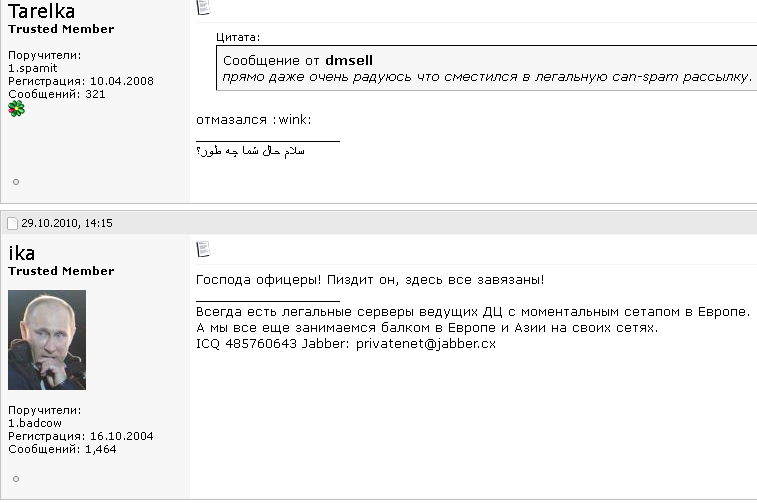Sophos isn’t the primary cybersecurity vendor to seek out its perimeter merchandise the goal of sustained nation-state assault. If something is particular concerning the sequence of occasions we reveal in “Pacific Rim: Contained in the Counter-Offensive—The TTPs Used to Neutralize China-Based mostly Threats“, it’s that we’re reporting this hunt / counter-hunt exercise as totally as ongoing investigations permit as an example exactly what the safety trade is dealing with when it comes to the willpower and aggressiveness of sure attackers. By means of it, we’ve realized an awesome deal about countermeasures. This essay presents three units of observations that different defenders can apply.
To lift the adversary’s price, burn the adversary’s functionality. Sophos is giant sufficient to have the ability to muster severe sources in emergencies, however nonetheless nimble sufficient to reply quickly and creatively to place the harm on an attacker. On this state of affairs, we had the home-field benefit of firewalls being comparatively predictable environments. In comparison with exercise on general-purpose endpoints, attackers are compelled to work tougher to be quiet and unobtrusive on firewalls. Measure that towards the overall excessive goal worth of firewalls – highly effective Linux gadgets, at all times on, good connectivity, located by their nature in trusted locations on the community – and you’ll see each why an attacker would want to be there and why we had been capable of meet the attacker successfully on that discipline.
To make certain, there have been a couple of extraordinary (and tense) moments as we watched the attacker evolving their inventive talents; the UEFI bootkit – we imagine it to be the very first noticed occasion of a bootkit utilized for persistence on firewalls – involves thoughts. However that type of creativity comes at a excessive price. A world during which attackers are compelled to seek out methods to dwell in reminiscence and use UEFI bootkits for persistence is a world during which most defenders would, once more, say that they had a home-field benefit. (After which they will get on with the method of detecting and responding to these very particular techniques.)
Telemetry has been a significant component in our home-field benefit for the reason that begin of exercise. One in all our first actions early within the Asnarök exercise (spring 2020) was to problem an robotically deployed hotfix to not solely patch the CVE-2020-12271 bug however to enhance fleet-wide observability, rising the amount and the sorts of telemetry returned to us for evaluation. Within the years that adopted, telemetry, and the related detection-and-response processes, turned an essential pillar of our Product Safety program. Privateness considerations had been after all front-and-center in our pondering (regardless that the type of technical inner system knowledge we would have liked didn’t contact, as an example, PII), so balancing these considerations and the customer-safety advantages of elevated knowledge assortment was a painstaking course of, particularly as regulation enforcement turned concerned.
In fact, defending gadgets which might be on-premises in buyer environments has its personal constraints. In lots of instances, these take the type of outdated firmware or end-of-life {hardware} that’s nonetheless in “use” far past precise usefulness. The second lesson realized in the middle of this sequence of investigations could seem anti-end-user or unenforceable, however in 2024, it bears severe dialogue.
For the nice of customers and of the web at giant, each hotfixes and end-of-life should turn out to be non-optional for firewalls. A firewall that’s bought after which not up to date for 5 years is, frankly, not a firewall. A firewall so previous it can’t take new hotfixes is, frankly, not a firewall.
There’s a full of life dialogue available round end-of-life points with {hardware}, however let’s take up the hotfix query first. We all know that many directors, significantly those that nonetheless adhere to habits and practices developed within the boxed-software period, are cautious of making use of patches that they haven’t themselves examined (regardless that the *-as-a-Service period has smoothed that course of to a big diploma). Although we agree that hands-on consideration to patches and hotfixes is truthful and justified for a lot of different gadgets on manufacturing techniques, we argue that firewalls directors want to acknowledge the time-criticality of updates to those extremely specialised techniques, and to belief their vendor to quickly repair points for them. In fact, this belief have to be earned; current occasions have made crystal-clear the seriousness of trusting computerized updates, particularly for extremely privileged purposes. Distributors have to take their updating duty critically with rigorous testing, staggered deployments, transparency into all adjustments and, critically, detection and response processes constructed to make sure they will react in a approach that materially reduces hurt throughout their buyer base.
Over time, because the web evolves, even essentially the most diligently up to date {hardware} will attain the tip of its capacity to cost-effectively assist essential updates and options. In some unspecified time in the future, these older gadgets turn out to be not simply lifeless, however actively undead and harmful, because the occasions described in Pacific Rim timeline: Data for defenders from a braid of interlocking assault campaigns present all too effectively. The firewall turns into a type of “digital detritus,” the {hardware} equal of the previous and unattended knowledge described by Jillian Burrowes a few years in the past – outdated and destined to be abused. A dialog about easy methods to cut back the assault floor such gadgets current is a troublesome, giant, and essential dialog – one we imagine our vendor neighborhood, and the bigger defender neighborhood, ought to undertake sooner quite than later.
Safety is a workforce sport. Offense is a workforce effort. Protection must be a workforce effort. And “workforce” is the operative, the mandatory scope right here. Sophos’ story is everybody’s story. Not solely are we not the one targets, proof (each public and extra carefully held) signifies that we’re not even the infosec concern getting the worst of it. As our story exhibits, the assaults on our perimeter gadgets had been a multi-faceted workforce effort, the strategies of ingress and persistence handed round from legal group to legal group. To even the edges, companies should search communion with trade friends, with authorities and law-enforcement entities, and even with unbiased and even nameless safety researchers. Firms primarily based in Europe and the West could discover the buildings for public-private relationships far completely different from these in nations comparable to China, however it is a rally cry for all of us to leverage our collective intelligence to battle again.
In the middle of these occasions, we now have labored with an awesome quantity and number of authorities companions; we record plenty of them on the finish of the principle article. Sophos participates in organizations comparable to JCDC as a result of it’s the best factor to do, however within the final couple of years we’re more and more seeing actual advantages, actual info sharing, actual evaluation, actual muscle put into takedowns. As momentum builds, defenders want to seek out the best methods their organizations can sit down on the desk(s) that make sense for his or her companies. As our saga exhibits, the adversaries don’t hesitate.
However the fellowship of defenders isn’t only for these with badges or enterprise playing cards. Bug bounties – as soon as controversial, and nonetheless under-appreciated as a type of defender cooperation – additionally play an element in a robust defender neighborhood. On a number of events in the middle of these occasions, we paid bounties to researchers reporting vulnerabilities comparable, or similar to, these discovered to be in use by the attacker(s). In not less than one case the reported vulnerability was already getting used towards high-value targets, resulting in potential questions of how that occurred and the way the researcher may need been associated to the attackers.
Right here’s our reply to these questions: Who cares. Do we all know how, or if, the researcher and the attacker(s) are associated? No. Can we? Extremely unlikely. Does it matter? Probably not – the one factor that’s essential, and the factor that makes it price it to have paid the bounty, is that we had been capable of considerably disrupt an ongoing operation and assist victims get better from a severe assault. What number of extra victims may the adversary have compromised, had the difficulty (CVE-2022-1040) not come to our consideration through our bug bounty program?
As detailed elsewhere, this saga continues. The wheels of regulation enforcement typically grind slowly, and the entities we imagine to be behind this multi-year effort are nonetheless very a lot lively. (Certainly, international conflicts have turn out to be much more sophisticated since this all began half a decade in the past.) Inside Sophos, the multi-team efforts required to shortly parry waves of assaults have led us to refine and enhance in-house processes right here – some giant, some very small. These enhancements are additionally an ongoing course of.
We now make our case to the remainder of the trade: Be a part of us in working to boost adversaries’ prices by burning their functionality; to discover a solution to sweep away safety detritus that when helped to guard the web, however now solely hurts it; and in treating cyber-defense as a workforce effort, because the adversaries do.
Sophos X-Ops is blissful to collaborate with others and share extra detailed IOCs on a case-by-case foundation. Contact us through pacific_rim[@]sophos.com.
For the total story, please see our touchdown web page: Sophos Pacific Rim: Sophos defensive and counter-offensive operation with nation-state adversaries in China.


_Andrea_Danti_Alamy.jpg?disable=upscale&width=1200&height=630&fit=crop)











/cdn.vox-cdn.com/uploads/chorus_asset/file/25537887/STK275_CROWDSTRIKE_CVIRGINIA_D.jpg)




/cdn.vox-cdn.com/uploads/chorus_asset/file/25299201/STK453_PRIVACY_B_CVirginia.jpg)





